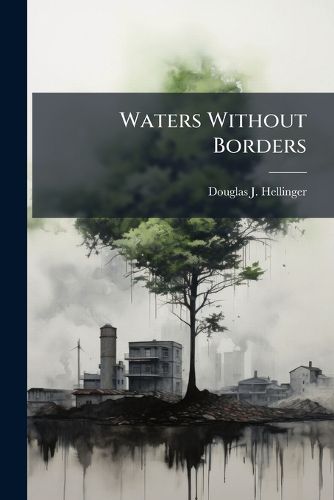Readings Newsletter
Become a Readings Member to make your shopping experience even easier.
Sign in or sign up for free!
You’re not far away from qualifying for FREE standard shipping within Australia
You’ve qualified for FREE standard shipping within Australia
The cart is loading…






In response to demographic forces, climate change, globalization, shifting societal values and norms, low rates of adoption of technological innovation, inadequate domestic and international laws, and market forces, pressures on water resources have increased to levels unprecedented in human history. Unanswered, the trend will accelerate in the future.Despite earlier perceptions that water scarcity most often leads to conflict, many recent studies conclude that cooperation is actually a more prevalent outcome in situations where two or more countries share water resources. Either way, future trends should not be overly predicated on past outcomes given that the anticipated scale of the impending water crisis exponentially outstrips scarcity conditions experienced to date. This paper explores possible future outcomes of interaction over shared international water resources based on two driving forces: governance and technology. Strengthened national and international governance can overcome geopolitical tendencies that would otherwise discourage cooperation. High levels of technological innovation, transfer, and adoption that increase water-use efficiency or available supply reduce immediate pressures and buy time for enduring cooperative mechanisms for governing shared water resources to develop. While universal cooperation over shared water resources is the obvious ultimate goal, the most immediate concern for the US is to prevent armed conflicts and widespread social upheaval in regions with overlapping US national interests. An understanding of what creates shared water resource "flashpoints" and the conditions that favor conflagration into larger regional conflicts is a valuable policy planning tool.
This work has been selected by scholars as being culturally important, and is part of the knowledge base of civilization as we know it. This work was reproduced from the original artifact, and remains as true to the original work as possible. Therefore, you will see the original copyright references, library stamps (as most of these works have been housed in our most important libraries around the world), and other notations in the work.
This work is in the public domain in the United States of America, and possibly other nations. Within the United States, you may freely copy and distribute this work, as no entity (individual or corporate) has a copyright on the body of the work.
As a reproduction of a historical artifact, this work may contain missing or blurred pages, poor pictures, errant marks, etc. Scholars believe, and we concur, that this work is important enough to be preserved, reproduced, and made generally available to the public. We appreciate your support of the preservation process, and thank you for being an important part of keeping this knowledge alive and relevant.
$9.00 standard shipping within Australia
FREE standard shipping within Australia for orders over $100.00
Express & International shipping calculated at checkout
In response to demographic forces, climate change, globalization, shifting societal values and norms, low rates of adoption of technological innovation, inadequate domestic and international laws, and market forces, pressures on water resources have increased to levels unprecedented in human history. Unanswered, the trend will accelerate in the future.Despite earlier perceptions that water scarcity most often leads to conflict, many recent studies conclude that cooperation is actually a more prevalent outcome in situations where two or more countries share water resources. Either way, future trends should not be overly predicated on past outcomes given that the anticipated scale of the impending water crisis exponentially outstrips scarcity conditions experienced to date. This paper explores possible future outcomes of interaction over shared international water resources based on two driving forces: governance and technology. Strengthened national and international governance can overcome geopolitical tendencies that would otherwise discourage cooperation. High levels of technological innovation, transfer, and adoption that increase water-use efficiency or available supply reduce immediate pressures and buy time for enduring cooperative mechanisms for governing shared water resources to develop. While universal cooperation over shared water resources is the obvious ultimate goal, the most immediate concern for the US is to prevent armed conflicts and widespread social upheaval in regions with overlapping US national interests. An understanding of what creates shared water resource "flashpoints" and the conditions that favor conflagration into larger regional conflicts is a valuable policy planning tool.
This work has been selected by scholars as being culturally important, and is part of the knowledge base of civilization as we know it. This work was reproduced from the original artifact, and remains as true to the original work as possible. Therefore, you will see the original copyright references, library stamps (as most of these works have been housed in our most important libraries around the world), and other notations in the work.
This work is in the public domain in the United States of America, and possibly other nations. Within the United States, you may freely copy and distribute this work, as no entity (individual or corporate) has a copyright on the body of the work.
As a reproduction of a historical artifact, this work may contain missing or blurred pages, poor pictures, errant marks, etc. Scholars believe, and we concur, that this work is important enough to be preserved, reproduced, and made generally available to the public. We appreciate your support of the preservation process, and thank you for being an important part of keeping this knowledge alive and relevant.